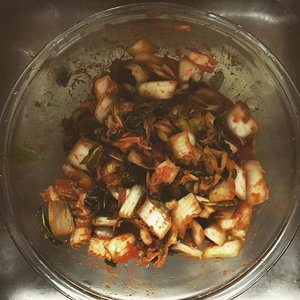1948 | Gaesong, North Korea
Holston Girls’ Christian High School
“If you say one word about this, I could have you thrown in jail,” he bluffed.
At a fresh and precocious twenty years of age, Miss Park was just months into her first job as a music teacher. Yet she stood still, unintimidated before her colleague. Three girls in her classroom had mustered the courage to voice unspeakable acts done unto them. Miss Park was the only lifeline they had, and she would not stay silent. She was angry and determined to unmask her male counterpart, even if it was the last thing she would do.
Days later, the school indicted the male teacher as a sex offender and showed him the door. Miss Park stayed in the classroom for two more years until the start of the Korean War on June 25, 1950. Her home would soon take on a new identity to the rest of the world as “North” Korea.

Fleeing southward in the open bed of a truck – she smiles while telling me – Miss Park whistled and belted melodies all the way to their new home. One small room discovered its full potential, broken in by nine kids, two parents, and one dependable rice cooker. Against all odds, their father would not bend in his commitment to educating his children. Six diploma-proud daughters later, the family came away from the war fortified and with a bright future stretched ahead.
Seven years later, the courageous woman carried her second child within while burying 200 earthenware jars filled with salted young kimchi into the ground. By summer time, the kimchi was unearthed and ripe when my father was born.
October 15, 1966 | Chelsea, New York
Arriving at the cusp of autumn in New York was almost beautiful enough to let go of her long-held dream to live and go to art school in Paris. Lovelorn for a place she had never been, twenty-six year old Sunja “Sunny” Lee unpacked a suitcase of clothes still fresh with the sweet scent of her mother’s inari rolls.
“Chelsea was nothing like you could ever imagine,” she told me, the tiny orange glow of her cigarette blooming and fading. “People were knifing each other in the streets back then.”
Bent on becoming a sculptor, but faced with the reality of finite resources, she completed art school on a full-ride scholarship and decided to try her hand at restoring antiques. After apprenticing under a master gilder to learn a special technique of water and oil gilding, she took her newfound skills and vouched for herself at an antique restoration shop.
“You know, if I hire you, I’ll have to build a separate women’s bathroom. It’s against the law if I don’t have one. It’s an awful lot of trouble to go through,” said the shop owner. But with rare gilding skills typically passed down within family lineages, she knew she had the job in the bag.

She was one woman strong in a room of eleven fellow gilders, all men. She became so good, she began running the team around mansions in New York to restore antiques for wealthy people from faraway places. Soon enough, she opened up her own restoration shop in Queens. She loved every moment, sixteen hours a day, seven days a week. “Without work, I’da died already,” she says taking a long drag from her fourth cigarette. Within just five years, she’d bought her first home in Sunnyside.
On her last trip to Paris, it had finally sunk in. She had traveled the world over to find that there was no other place quite like New York; no place like home.
At 77 years old, my grandaunt is still living her best life in Sunnyside, Queens in a home adorned by her own sculptures and antique collection.
2020 | Sunset Park, Brooklyn
Writing from my bedroom, I can smell the force of month-old kimchi sitting in the kitchen fridge bestowed to me by my grandaunt. Pork belly, tofu cubes, and a whole lot of kimchi juice later, the smell is reborn with newfound purpose in a pot of jjigae stewing on the stovetop.

Just a spoonful satisfyingly sears on the way down, tickling all the microvilli on its magic school bus trip through the body. A taste so tangy, a flavor so fearless. Anything but diluted, the way I’d always told myself to be.
I had traced these stories again and again ever since they’d been passed down to me. I wanted to know where the calcium of my bones had come from: how it had endured, and how it is different now, today. Searching the cool chambers of 200 underground kimchi pots of my grandma’s memories, I instinctively knew that whatever substance dwells within the flesh and bones I’d inherited could bear the salt, the sour, the heat – not just bear it, but thrive.
*
Susan is a Korean American poet and MFA candidate at the Writer’s Foundry of St. Joseph’s College. Her coordinates for home fall between the US, China and Korea, and she currently resides in Brooklyn.